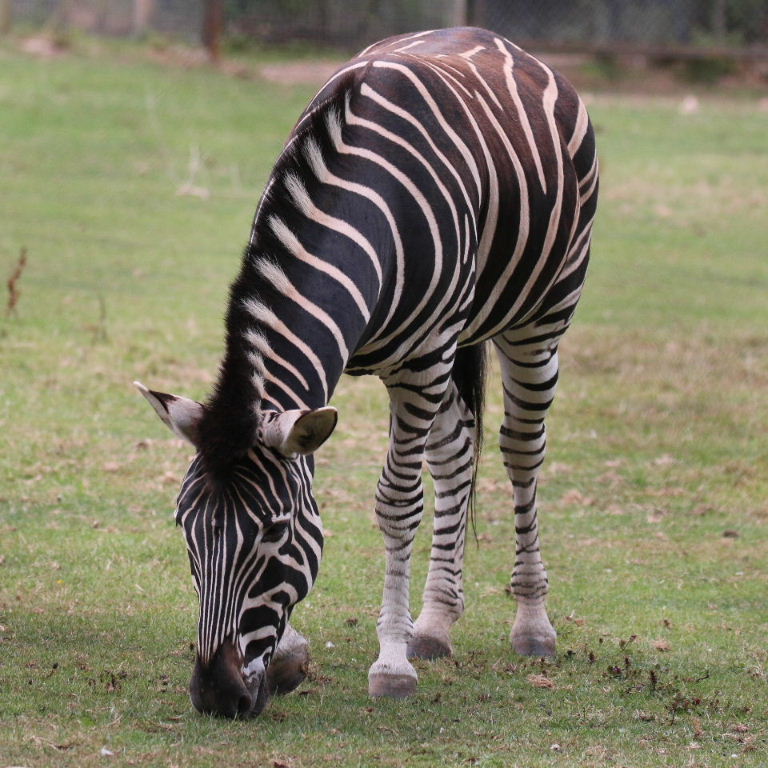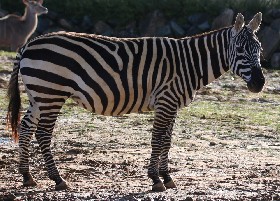Plains Zebra Equus quagga (formerly Equus burchellii)


There are three species of Zebra - Plains, Mountain and Grevy's - all are black (or dark brown) and white striped small horses
native to Africa, but the basic stripe pattern and other features vary.



The most common is the Plains Zebra shown here, with wider white stripes than the others and which has several subspecies.
Recent research (2018) suggests these may not be subspecies but "clines" of one species. The most common Plains subspecies (or clines) are
Chapman's Zebra above and Grant's (further below).
 Shadow stripes
Shadow stripes
 No shadow stripes
No shadow stripes
 African Art
African Art
Chapman's or the southern Plains Zebra of southern Africa (above) can have plain white stripes between the black or, within the same herds,
can have shadow light brown/grey stripes on the rump as shown above left. Chapman's and Burchell's, the most southerly zebras, are said
to be the only subspecies to have shadow stripes.



Chapman's also has light, partial striping on its lower legs, though individuals differ. One subspecies (Burchell's, also called Damara)
has no stripes on the lower legs and some (Grant's/Selous'/Crawshay's/Maneless of East and southeast Africa)
continue full stripes down to the hooves.



A particularly dark version of Chapman's Plains Zebra. Each individual zebra has a different facial pattern and body stripes,
like our fingerprints.



Grant's subspecies, above, of East Africa, the smallest subspecies, has fully-striped lower legs to the hooves.
The northern subspecies generally do not have shadow stripes.
The Maneless subspecies has heavily-striped legs; a separate page (see link below) is given to this subspecies.



More Grants zebras above. All Plains Zebras also have stripes continuing under the belly.
Zebras can run at some 40 mph.



Plains Zebras have a non-territorial social structure consisting of individual harems
of several females, offspring and a stallion joining other harems, groups of bachelor males and sometimes
other species to form large (sometimes vast) herds. In this way there are more to warn of predators.




